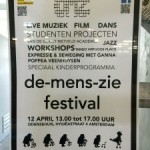ISSA Proceedings 2014 ~ The Ubiquity Of The Toulmin Model In U.S. Education: Promise And Peril
Abstract: Secondary and university instructors in the United States rely heavily on the Toulmin model to teach written argumentation. To date, pragma-dialectics (van Eemeren and Grootendorst 2004; van Eemeren 2010) is not a visible presence in American composition textbooks. This session encouraged writing consultants to ask critical questions not only associated with Toulmin’s model but also those of the pragma-dialectic model of critical discussion in order to improve the critical thinking of writers.
Keywords: composition, critical thinking, critical questions, pragma-dialectics, teaching, Toulmin model, United States of America, writing
1. Introduction
Both secondary and university instructors in the United States of America rely heavily on the Toulmin model to teach written argumentation (Hillocks 2011; Ramage, Bean and Johnson 2001; Smith, Wilhelm, and Fredricksen 2012). No other theoretical models of arguments are as prominent in composition textbooks and curricula.
Because of the emphasis on argumentative writing in Common Core State Standards (newly adopted in many U.S. states), a flurry of new books and curricula on teaching argumentation have been published in the last five years. One can see how predominant the Toulmin model is by simply flipping the pages of Teaching Argument Writing by George Hillocks (2011, xix) and Oh Yeah? Putting Argument to Work Both in School and Out by Michael W. Smith, Jeffrey Wilhelm, and James Fredricksen (2012, 12). Teachers have questions. They need good resources. The Toulmin model is the backbone of most argumentative writing curricula in the United States because it meets real needs. It is helpful because it defines a vocabulary for the elements of an argument; and it visually illustrates the relationship between claims, data, and warrants. When facing common problems in writing instruction, the Toulmin model provides a schema for diagnosis and treatment.
Because student writers struggle to compose written arguments, teachers do need solid understandings to help students improve. Perhaps the Toulmin model is a popular frame for argumentative writing curricula because it allows teachers to focus attention on problems that often occur with key elements of arguments: claim, data, warrant, backing, qualifiers, and conditions of rebuttal. Helping students to invent and include these elements in their papers is much of the substance of current argumentation curricula.
In this article, I want to step back and look at this reliance on the Toulmin model from the distance afforded me by a sabbatical at the University of Amsterdam, where the pragma-dialectical model of argumentation holds the privileged place that Toulmin’s does in the U.S.A. (Van Eemeren and Grootendorst 2004; Van Eemeren 2010). I am beginning to wonder whether some of the problems that teachers face when teaching argumentative writing might be problems not that the Toulmin model can help them to effortlessly solve, but ones that a reliance on Toulmin might be intensifying. Read more
ISSA Proceedings 2014 ~ Isocrates’ Moral Argumentation
Abstract: Two of Michael Calvin McGee’s unpublished manuscripts hint at how the ancient Greek philosopher Isocrates developed a perspective on argumentation that may be useful for contemporary analysis of public affairs. The first manuscript describes Isocrates as a “cultural surgeon” who operated using “moral argumentation.” The second manuscript suggests how individuals may repair cultural faults using moral argumentation. Through rhetorical analysis of Spanish 15M protest logoi, this paper explores the critical utility of Isocratic moral argumentation.
Keywords: Isocrates, Michael Calvin McGee, social movements, protest, 15-M, rhetoric, public argument, argumentation
1. Introduction
How may an understanding of argumentation scholar Michael Calvin McGee’s use of the term “moral argumentation” inform the analysis of modern-day protest activity? Exploration of this question promises to enrich understanding of this term and shed light on how argumentation by twenty-first century protestors may contribute to the processes of deliberation and unity formation. McGee first describes moral argumentation in the first of his two unpublished manuscripts on the topic of Isocrates (McGee 1986, 1998). In this manuscript, “Isocrates: A Parent of Rhetoric and Culture Studies,” McGee provides no direct definition of moral argumentation; however, some preliminary understandings may be extrapolated from McGee’s use of the term by reading this paper in tandem with the second manuscript, “Choosing A Poros: Reflections on How to Implicate Isocrates in Liberal Theory.” Although the term moral argumentation has been employed in other philosophical contexts, McGee inflects it in a unique and particular way that warrants further study (Habermas 1984, 1988, 1990, 1996). This paper aims to (re)construct the meaning of McGee’s “moral argumentation” to support a case study of protest logoi (i.e., reasoned arguments, such as protest slogans) by the Spanish protest group 15-M.
2. Moral argumentation
In the first manuscript, “Isocrates: A Parent of Rhetoric and Culture Studies,” McGee argues that Isocrates’ argumentation may be characterized as the “skill and talent of discovering how best to apply values to a given circumstance” [emphasis added] (McGee 1986). McGee’s definition attributes an implicit and intrinsic moral component to Isocrates’ form of argumentation, which is signaled by McGee’s use of the term “values,” a word that connotatively and denotatively carries ethical and moral implications (McGee 1986). McGee contends that for Isocrates, engaging in or performing “moral argumentation encouraged right action” (McGee 1986). McGee asserts that Isocrates stated that “moral knowledge” could be obtained through studying the “history of public address,” which also serves as a history of “virtue in action” (McGee 1986). By “public address,” McGee most likely gestures to the classical Greek understanding of the term, encompassing a variety of speeches (e.g., forensic, epideictic, deliberative, encomiastic) that were traditionally delivered at “the law courts, in political assemblies, and on ceremonial occasions at public festivals” (Ilie 2009, p. 833; McGee 1986). Thus, inherent in McGee’s description of this acquisitional process is the salient role history plays in obtaining “moral knowledge,” which is further articulated in the manner in which Isocrates constructed arguments (McGee 1986). Read more
Time to say Good-bye
 September 20th 2009 – a short walk through the busy city of Brussels: Journées du Patrimoine and Dimanche sans Voiture – though using the car is apparently not forbidden it is widely accepted not to use it. Nevertheless, the streets are crowded.
September 20th 2009 – a short walk through the busy city of Brussels: Journées du Patrimoine and Dimanche sans Voiture – though using the car is apparently not forbidden it is widely accepted not to use it. Nevertheless, the streets are crowded.
The sun is shining, and it is ideal for people from the Belgium and European capital to enjoy lovely day outdoor. Not just the Grand Place is reminiscent of a modern version of Pieter Brueghel’ s paintings but the main streets are occupied by colourful ado. Variegated syllables in different languages, the sound of music from everywhere and the people in their various dresses: simple and modern, jaunty and a little bit frivolous or conservative-respectable. Men, women – showing their faces au naturel and others who still look more like a masque of themselves – despite the vibe of the folk’s fair, despite people apparently taking over the lead.
And it is in the middle of this hassle and bustle and bursting joyfulness that I begin to get contemplative: Finally a decision had now been taken – a decision that stood in waiting position since some time, but loosely only, still needing confirmation. And a decision that is not really a single event – it is part of a series of events, decisions, part of a long development. A historical decision? A fundamental change?
So many decisions had been taken and are frequently taken – though they seem to be large or small, we do not really know what their meaning is in the historical development – a history made by men, a history that is made by us and nevertheless weighs as nightmare on our shoulders.


